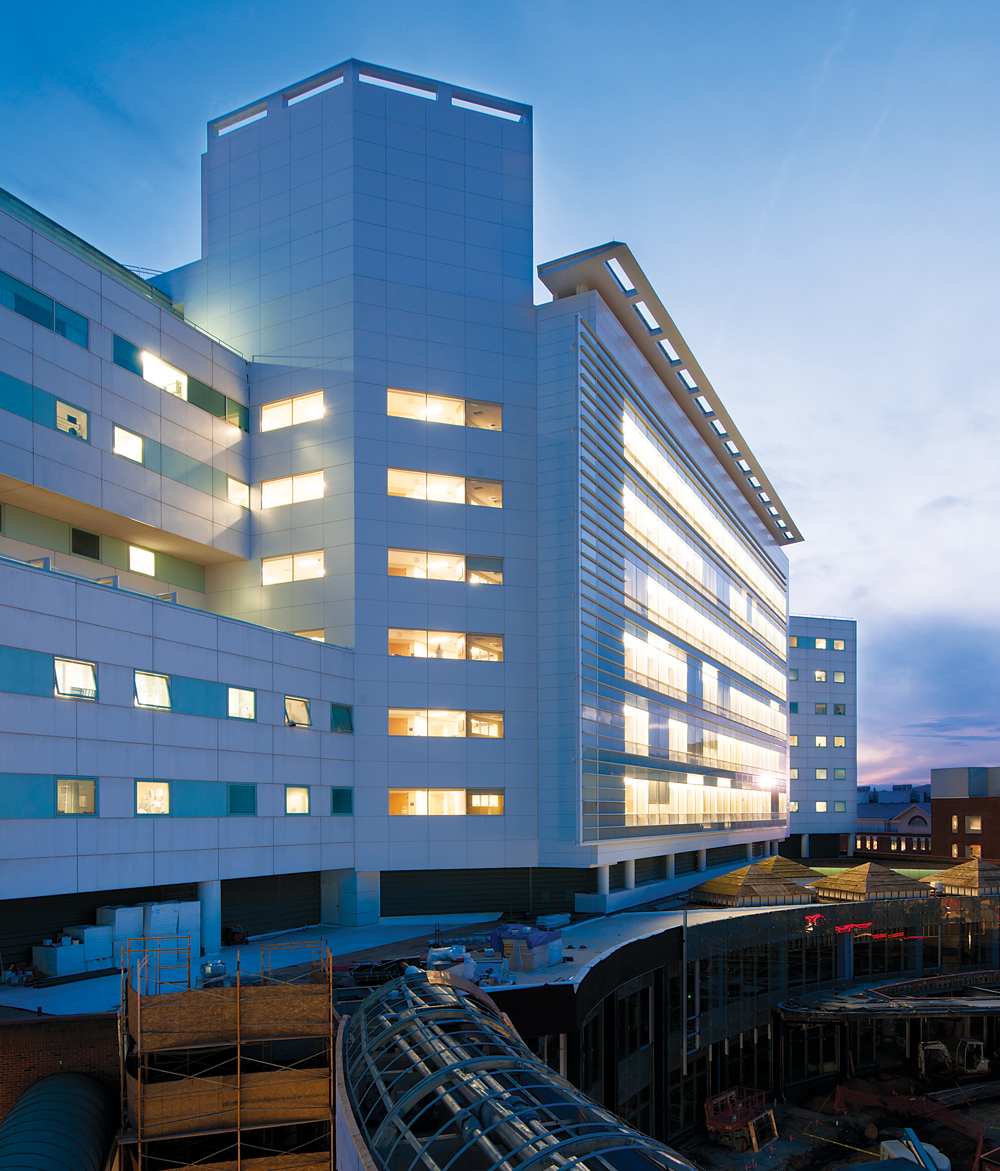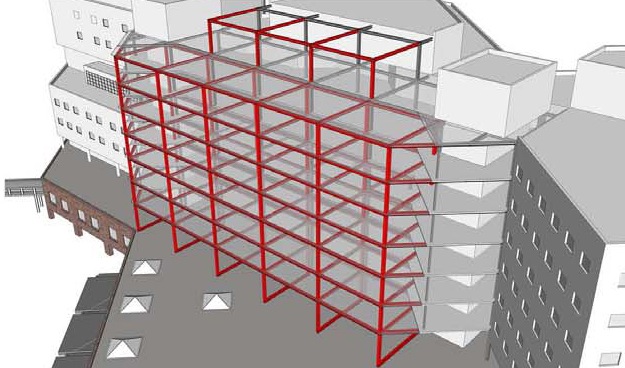The University of Virginia Medical Center in Charlottesville took a novel approach when expanding an existing patient tower. Rather than adding a wing, the Building Team attached an eight-story, 127,000-sf expansion to the front façade.
SmithGroupJJR designed the 34-foot-deep addition, which comprises stacked 12-bed nursing units and a new mechanical penthouse. Existing columns and beams were upgraded to address new seismic requirements, and new elevators and structural reinforcements were added to allow penetrations of the original building. A 45-foot helipad was constructed above the existing roof, with two high-speed elevators for quick access.
The light-filled rooms, providing 72 acuity-adaptable patient beds, feature soft, neutral colors and are flexible enough to support all phases of the treatment process. The building can now serve a wide range of critical-care departments, including pediatric, postpartum, surgical stepdown, and ICUs for the neurology, thoracic cardiology, and general medical patient population.
The construction team, led by GC/CM Gilbane, scheduled the work to minimize impact on patients and medical staff during construction. Prefabricated steel and curtain wall systems were installed on evenings and weekends, when passersby were less frequent. Seismic and structural work was scheduled at the same time as related lower-level renovations.
BRONZE AWARD
Project summaryUniversity of Virginia Medical Center Patient Tower Expansion
Charlottesville, Va.BUILDING TEAM
Submitting firm: SmithGroupJJR (architect)
Owner/developer: University of Virginia Facilities, Planning and Construction Department
Structural: Spiegel Zamecnik & Shah
MEP: AKF Engineers
GC/CM: GilbaneGENERAL INFORMATION
Project size: 127,000 sf
Construction cost: $69 million
Construction period: August 2008 to February 2013
Delivery method: CM as agency
A 2-foot, 8-inch gap between the new construction and existing building was important for allowing the hospital to remain open with minimal distractions. The noise-buffering gap was not infilled until the addition was fully enclosed, followed by removal of the existing façade and renovation of the adjacent space. A heavy use of BIM helped optimize efficiency.
Judges were impressed with the coordination required. “I can only imagine the challenges associated with isolating existing utilities and systems in prep for the removal of the façade, the temporary structures/systems required to keep the weather out while they made the tie-in to the existing structure, as well as dealing with vibration, noise, and dust on all eight floors all at the same time,” says juror Drew Martin, Senior Project Manager with Clark Construction.
“The infrastructure alone is a huge challenge on a project like this,” says Nathaniel Snydacker, PE, LEED AP, Vice President at Environmental Systems Design. “Extending existing services and seamlessly integrating new equipment to support the additional area and associated loads requires precise coordination between the engineers, architects, and contractors.”
“This project exemplifies the meaning of teamwork and cooperation,” concludes Terry Fielden, LEED AP BD+C, Director of K-12 Education for International Contractors. “The incorporation of this ‘laminated’ addition into a fully functioning hospital demanded daily routine adjustments and constant cooperative collaboration from all hospital staff. The end reward is nurturing patient care.”








